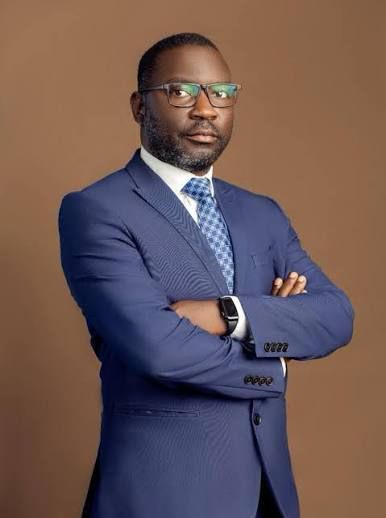In a democracy, oversight institutions like the Office of the Ombudsman exist to uphold the highest levels of professionalism, impartiality, accountability and unwavering respect for due process across public bodies. These principles are not optional, they are foundational to public trust. Their legitimacy rests not only on legal authority, but on the consistent and impartial exercise of that authority.
But what happens when the watchdog starts chasing shadows or settling personal scores under the guise of accountability?
That is precisely why the recent actions of the Office of the Ombudsman toward Milton Margai Technical University (MMTU) are deeply troubling. A flyer, allegedly issued by the Ombudsman’s Office, claimed that MMTU demonstrated “the highest level of non-compliance” with the Ombudsman’s directives. The statement, widely circulated on social media and in the press, painted the university as defiant and uncooperative. But the facts, as laid out by MMTU, suggest a very different picture.
According to MMTU’s official response, the university has complied with all relevant inquiries. The issue, they say, stems not from refusal to cooperate but from the Ombudsman bypassing formal procedures outlined in the Universities Act of 2021. This law requires that all official communication to the university must be directed through the Registrar—not directly to the Vice-Chancellor or any other official. Ignoring this process, MMTU argues, has led to miscommunication and confusion that the Ombudsman’s Office has mischaracterized as non-compliance.
If true, this represents a serious procedural lapse, not on the part of the university, but by the very office tasked with ensuring administrative fairness.
Worse still are credible reports alleging that the Ombudsman privately expressed a desire to “cut the stand” on which MMTU’s Vice-Chancellor and Principal is standing. Such language, if verified, reveals not impartial oversight but a troubling indication of personal bias. Oversight should never become a weapon for settling personal scores or pursuing institutional grudges. The Ombudsman’s role is to rise above such motives, not to be driven by them.
The consequences of this misstep extend far beyond MMTU. They strike at the heart of public confidence in oversight institutions. At a time when Sierra Leone is working to strengthen democratic institutions and rebuild trust in governance, actions like these risks undoing hard-won progress. If citizens come to see the Ombudsman’s Office as arbitrary, unaccountable, or politically motivated, its ability to function effectively will be severely compromised.
It’s important to note that the Ombudsman’s Office itself is only just recovering from a prolonged period of dysfunction. The power struggle between the previous Ombudsman and the former Executive Secretary was both public and damaging. It eroded internal cohesion, diminished service delivery, and left the public disillusioned. The removal of both officials was a necessary reset. The new Ombudsman had a golden opportunity to restore professionalism, rebuild trust, and lead by example.
Unfortunately, this early controversy suggests a troubling continuation of old habits rather than a clean break.
To be clear: no public institution is above scrutiny. MMTU, like any other public body, must be accountable and responsive to legitimate complaints. But accountability must be exercised with discipline and neutrality. When oversight is clouded by procedural breaches, inflammatory public statements, and whispers of personal vendettas, it ceases to be accountability, it becomes harassment.
The Ombudsman’s silence in the face of this controversy only deepens public concern. Attempts to seek clarification from the office have reportedly gone unanswered. In a matter involving public allegations against a respected academic institution, silence is not neutrality—it is negligence.
Moving forward, the Ombudsman must recommit to his constitutional mandate: to serve as a fair, neutral, and professional arbiter in matters of public administration. That includes respecting institutional processes, engaging constructively with public bodies like MMTU, and ensuring that all public communications are grounded in verified facts, not rumour, not innuendo, and certainly not personal agendas.
Our democratic system depends on strong, principled watchdogs. The Ombudsman must rise above personal motives and remember that his office is bigger than any one individual or dispute. He owes that to the people of Sierra Leone, to public institutions, and to the law itself.
What the country needs now is clarity, fairness, and a reaffirmation of principle. The Ombudsman’s Office must publicly explain its actions, justify its claims, and, if necessary, acknowledge any procedural missteps. More importantly, it must commit to a path of professional engagement and institutional respect moving forward.
Rebuilding trust begins with transparency. It begins with adherence to due process. And it begins with a clear understanding that public office is not a platform for personal agendas.
This controversy should be a moment of reflection not just for the Ombudsman but for all oversight bodies in Sierra Leone. Their power lies not in authority alone, but in the moral high ground that comes with fairness, credibility, and restraint. Lose that, and the entire system of checks and balances begins to unravel.
The Ombudsman must now act swiftly and wisely to course-correct. Targeting MMTU without due process was not only a misjudgement, it was a costly misfire. The office must rise above personal motives and recommit itself to its constitutional mandate: to serve as a neutral, independent arbiter of fairness in public administration.
That is what the public expects. That is what the law demands. And that is what democracy requires.


